Graham Reid | | 9 min read
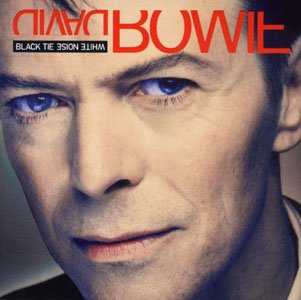
David Bowie is a pain.
Or more correctly perhaps, “his people” are.
Eighteen months ago, when he was keen to plug his uneven, already forgotten but not uninteresting Tin Machine II album (the follow-up to what we might have charitably called “a side project” in a long career) he was a pushover.
Oh, just wait by the phone “his people” said and “he’ll call you.”
And he did.
Of course.
Tin Machine had been one of David’s less spectacular ventures and if we considered the 80s – with the sole exception of perhaps Let’s Dance in ’83 with producer Nile Rodgers – his career had been one of diminishing returns.
Really, what do you remember of those 10 years from the man whose every move and music defined the 70s?
Little wonder then that at the dawn of a new era (and wasn’t David the one to know an “era“?) that he might be to be in a hotel in Paris hotel and keen to jaw on about his marvellous career and the various – though obviously elusive – merits of Tin Machine, a band Russell Baillie in the New Zealand Herald described with withering and witty accuracy as “the first thrash metal band in suits - and not much more.”
Well, that was then.
Last decade. Right?
David Bowie however is always worth talking to and one listen to the new Black Tie White Noise album, which teams him with Rodgers again, suggests this might be the time.
But what a pain!
His record company can’t let the advance tape out of the office for more careful and relaxed listening, faxes fly back and forth establishing the circulation of the newspaper undertaking this interview, and the journalists’ credentials have to be checked.
David wants to see something this poor hack has churned out ... so a copy of a Spinal Tap interview is duly dispatched for his consideration and confusion.
Then finally a paper is sighted before this phone interview in January which must be signed in advance (it isn’t) to say the results of this old chin-wag won’t see publication until after the release of the album in early March. And no selling the story to anyone else either, mate. So watch it!
Christ-on-a-bike! C’mon David – two years ago when Tin Machine was clanking around selling nothing, you were desperate to be interviewed and now all this?
Is this you, or “your people” at your new small record company, Savage, being just a little overprotective and precious?
“Blimey,” he splutters with Anglo-familiarity, “that’s incredible! I had absolutely no knowledge of all this.
“What a laugh! If they are trying to protect me, it’s a bit late,” he guffaws.
And for the only time in this half-hour of gossip, Serious Album Discussion and well modulated jocularity, the long-distance runner of rock – 25 years, almost as many albums – is almost stuck for words.
These days David Bowie doesn’t have to find too many words at all.
No more “the four weeks of heavy promotion” for him.
He’s not even going to tour this Black Tie White Noise album and, this far out from the first reviews coming in, doesn’t even feel the need to talk it up.
But now, two months on from this chirpy chat the jury’s verdict is in – and Black Tie White Noise has got, at the very least, cautious thumbs up.
“Neither diamond nor dog ... intermittently very good,” says Chris Roberts in Melody Maker.
“Five and a half good songs on this record – and bearing in mind that Bowie spent most of the 80s as a positive laughing stock, that’s an admirable achievement,” writes John Harris in NME.
And the New Zealand Herald’s critic Baillie, while saying Bowie hadn’t overexerted himself, noted that “this one’s better tracks make promising noises in the direction of re-establishing his pop appeal...”
Others have been more glowing in their tributes.
“The sort of album that grabs your ears and throws them against the wall,” wrote Colin Hogg in his five-star review in New Zealand’s Sunday Star, and Neil Spencer in the Observer acclaims Bowie as “back in step with the times.”
That’s a curious comment, given that Black Tie White Noise – which most writers have noted is part Station to Station, part Let’s Dance – is Bowie’s most recognisable Bowie album in years.
It’s as if Bowie felt the need to be Bowie again and remind us all that, despite the ch-ch-changes, he was still out there.
With an album of overt self-references (which he is happy to acknowledge) we are witnessing the return of the thin white duke, perhaps?
Bowie knows it and is playing it to the hilt.
In the month before the release of Black Tie White Noise he was posing on the front cover of NME with Brett Anderson of the new Brit sensation (and Bowie plunderers) Suede.
Never short of a smart quote ... and on this album not short of interesting things to talk about, like the fact that his swirling, sampled sax playing – very much a feature of Tin Machine’s plodding metallic progress – is everywhere.
“Tin Machine has given me a great loosening up and one that I needed. It has been invigorating, although I’ve never considered myself a proper sax player. I mess around the same way as Eno does with synthesisers,” he says with careful, jocular consideration.
“I blow at it rather than into it, but the thing we had fun with on this album was treating that sound electronically the way one would an electric guitar. We got some nice impressionistic results by distorting it and pushing it places where it’s not a sound for purists.”
And alongside Bowie’s wailing sax to hark back to the sound of early rock ‘n’ roll that he still admires Bowie has brought in another Bowie, renegade jazz trumpeter Lester Bowie, whose career has included oompah marching band versions of Michael Jackson’s Thriller and squirt pieces through straws underwater called Miles Davis meets Donald Duck...
Lester’s there for the chummy conceit of saying “the two Bowies together at last for the first time,” he says.
“I knew Lester was in town, so gave him a buzz to appear on one track, but he was such a gas he ended up on about half of them. He’s crazy in the studio and doesn’t stand still when he’s playing. He also doesn’t like to hear the track [he’s playing on] beforehand until he starts playing. You roll the tape and he jumps in. Sometimes he’s madly out of tune but then there are these great slabs that work brilliantly because it is so spontaneous.
“The track Looking for Lester is just a basket of sounds and like Eno and myself, back in his day, he is adventurous in his approach to the studio,” says Bowie, for the second time name-checking his old collaborator on the trilogy of albums in the late 70s. Low, Heroes and Lodger, which had a sonic texture similar in places to Black Tie White Noise. A hint to a hack?
And although there are echoes of Lodger material - particularly African Night Flight and Jump – Bowie also makes reference to that last Bowie-Rodgers collaboration, Let’s Dance.
There was a concerted effort on their part not to repeat themselves, although “Ricochet was my favourite track on Let’s Dance and we perhaps used that as a starting point, although I reverted to that late-70s writing style and a lot of those improvisational methods.”
An Eno hint again from the self-referential Bowie?
Curiously, the most Bowie/Eno piece on the album comes from the pen of onetime Walker Brother and cult figure Scott (Engels) Walker, Nite Flights.
It seems that, after Heroes, Walker had become “fairly besotted by what we had been doing and sent us the album he had made, Nite Flights, which came with even the same typeface for the lyrics.
“The song has cut-up lyrics of the kind we were doing and he’s a very good writer, I like to do an hommage to people whose work I admire – I’ve done Lennon and Bryan Ferry songs in the past – and this was a chance to put Scott’s beautiful song on an album.”
Less successful on the interpretation front is his wretched cover of the old Cream hit I Feel Free (“a bit moody isn’t it? Like, ‘I feel free with this ball and chain,’”). As an admirer of the Cream writing team of Jack Bruce and Pete Brown (“the sheer power of their musical lyricism and lyrics!”) he claimed the song for personal reasons.
“One of the few times I went out with my late half-brother Terry [who threw himself under a train in 1985] was to a Cream concert and it had a devastating effect on him in terms of opening him up to another kind of music.
“And Jump They Say deals with my feelings about Terry to a certain extent. That had been a difficult relationship in my life because we were so very similar in many ways.”
In a somewhat unconvincing observation from the man who publicly coked his way through white soul, withdrew in Berlin angst and has constantly – and very publicly – reinvented himself from the time of his alter-ego Ziggy Stardust onwards, Bowie expresses some surprise that his albums have been largely autobiographical and, as with Jump They Say, dealing with matters of his private life.
“I’d always been under the impression they weren’t [autobiographical]...but listening back, I suppose you can pretty well judge where I was at by any particular album. They do tend to express my mental exhaustions or uplifting times.
“Making an album can be cathartic and you inevitably bring your baggage of experience to them.”
And was Black Tie White Noise, with its bookends The Wedding and The Wedding Song written for his nuptials with Ethiopian-born model Iman last year?
“Well, yes I’m pleased to report, I am currently having a particularly wonderful time. I seem to be the only person whose private life doesn’t trouble them. The full flush of a new marriage and all that!
“The two pieces written for my wedding I liked so much I wanted to slam a bass and drums on them...but it isn’t, as some would have it, my ‘wedding album.’ The other songs deal with the ups and downs of any relationship...the only song which is saccharine is the last one [Morrissey’s I Know It’s Gonna Happen Someday] which is a complete romantic play written specifically to put a smile on my bride’s face. I did it with huge amounts of integrity,” he hoots.
And Bowie laughs frequently during this twittering, lively and thoroughly enjoyable conversation. The book by his ex-wife Angela is airily dismissed for the tedious, poorly written, gossipy trash it is and he turns the cliché of Clinton-younger-than-Jagger around by saying, “I’m still younger than Jagger...most people are.”
He laughs about the title of one of the bonus tracks on the CD, Lucy Can‘t Dance. Who can these days? Sally couldn’t, Genesis can’t, white men can’t jump...
He hugely enjoys the joke of doing a Morrissey song in such an outré way and again attributes his new-found cheerfulness – so different from the mid-80s, when he admits he lost the plot and felt complete disinterest – to his marriage.
“No, no tour this time. I want to spend sometime within my marriage and don’t want to disappear for a year. I want to get that balance between my working life and marriage. And we’re working on the little ones at the end of year!”
Working, too, on another Tin Machine album, despite the critical indifference and sales that plummet with each outing. Last year’s Tin Machine Live went mostly unreviewed and widely ignored. You’d love to see the sales returns on that little Oy Vey Baby, as it was wittily entitled. He’s persistent?
“No, I’m not persisting with it, I actually enjoy Tin Machine and especially like the first album which had an incredible power and was a jolly good thing to have done.
“It freed me up musically and sometimes you have to go back to something before you work through certain ideas. Tim Machine has been that sort of work-in-progress, although it has met with complete hostility,” he laughs again.
“But I remember exactly the same response to Low...and now it’s considered a milestone in art rock, according to the critics.”
And given new life again as composer Philip Glass has taken themes from that Bowie/Eno ’77 conception and reinvented them as more cinematic, less sombre string works.
“It is a symphonic hommage to an important and record that went beyond the categories of pop music and pointed in a different direction,” says Glass.
So after a dodgy decade, the old chameleon Bowie is back on a number of fronts. The concert audience for contemporary classical music gets The Low Symphony: whether you’re walking through London tube stations or along Albert Street in Auckland, the snappy typography of Black Tie White Noise is everywhere; dance clubs are playing an alternate mix of Jump They Say; and a well orchestrated marketing plan from Bowie’s new Savage label has kicked in the single(s) and album over the last week in March through April.
The best marketing device however is Bowie himself; chatting up the press, posing for cool black tie white face photos and giving the regal nod of approval to Britain’s hype-of-the-year Suede in NME by jawing on about the usual old boy/new boy stuff ... drugs, sex, nazism, Crowley.
Suddenly, David Bowie is hip again.
Call it what you will, but it’s the return of the thin white duke.
“This year looks wonderful already,” he says, before bursting out with a beautifully modulated English laugh.
“I’m really coming into my own now. Took a while, didn’t it?”
This article appeared in the New Zealand Herald in early 93 but is not available at the Herald website

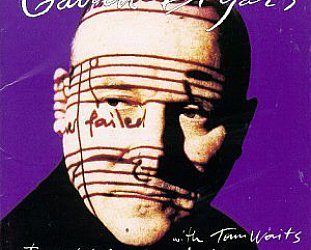
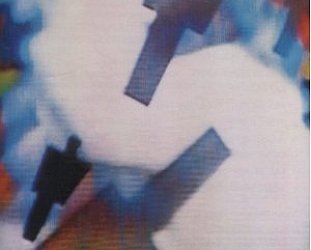
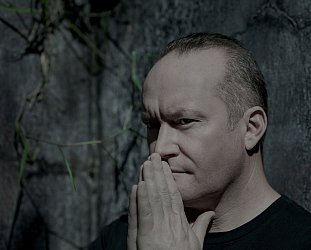

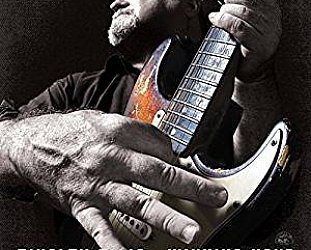
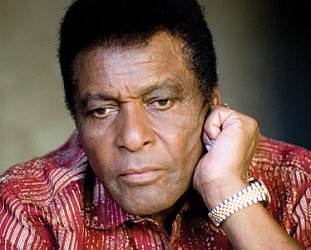
post a comment